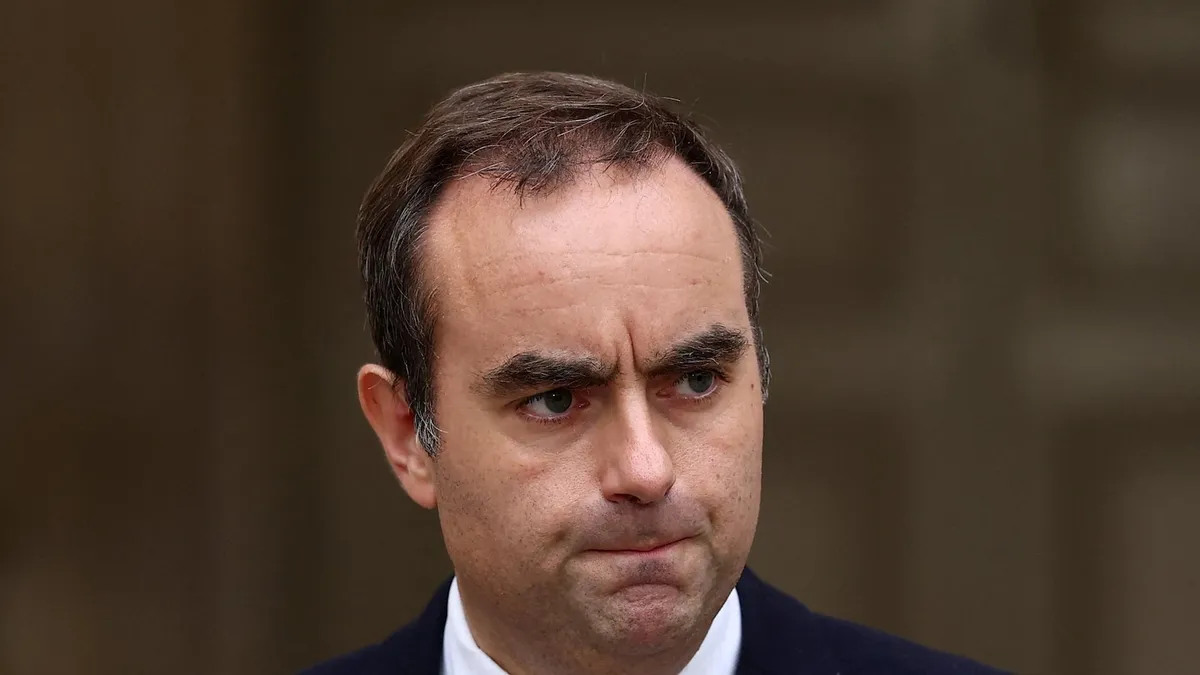
In a shocking turn of events, France's Prime Minister Sébastien Lecornu resigned less than 24 hours after unveiling his new government, marking a significant political crisis for the country. This resignation comes just a month after Lecornu took office, leaving French President Emmanuel Macron with limited options as he navigates through a turbulent political landscape.
The resignation, confirmed by the French presidency, comes at a time when Macron's approval ratings have plummeted to record lows. Lecornu's brief tenure follows the departure of his predecessor, François Bayrou, and represents the fourth prime ministerial change in less than a year, underlining the ongoing political instability in France. This turmoil has been exacerbated by the snap elections called by Macron last year, which resulted in a fragmented legislature and a political deadlock.
Currently, the National Assembly is split, with far-right and left-wing lawmakers controlling over 320 seats, while centrists and allied conservatives hold 210, leaving no party with an outright majority. Lecornu, a loyal supporter of Macron, stated that he believed the conditions to continue in office were no longer viable after failing to establish a consensus. “It would take little for it to work," he remarked in his resignation speech, emphasizing the need for humility and prioritizing the country over party interests.
With less than two years until the next presidential election, Macron's opponents have seized the opportunity to push for change. The far-right National Rally, led by Marine Le Pen, has called for either new snap parliamentary elections or for Macron to resign. Le Pen questioned Macron's ability to maintain stability, stating, “We have reached the end of the road. The only wise course of action in these circumstances is to return to the polls.” Meanwhile, on the far left, the party France Unbowed echoed calls for Macron's departure and suggested forming a coalition among left-leaning parties.
The unexpected resignation has sent shockwaves through the financial markets, with the CAC-40 index of leading French companies dropping nearly 2% by the end of the trading week. Newly appointed ministers found themselves in an unusual predicament as caretaker officials, tasked with managing daily operations until a new government is established. Agnès Pannier-Runacher, who was recently reappointed as the minister for ecology, expressed her frustration on social media, describing the situation as a “circus.”
Lecornu's selection of ministers has drawn criticism from across the political spectrum, particularly regarding his decision to reappoint former Finance Minister Bruno Le Maire to the defense ministry. Critics argue that Le Maire’s tenure coincided with a significant rise in France's public deficit. Lecornu's main objective would have been to navigate the budgetary challenges posed by France's massive debt crisis, which stood at a staggering 3.346 trillion euros (approximately $3.9 trillion) or 114% of GDP by the end of the first quarter of 2025. Debt servicing is a major concern, consuming around 7% of state spending.
Despite the upheaval, several key cabinet positions remained unchanged. Bruno Retailleau, the conservative interior minister responsible for policing and internal security, Jean-Noël Barrot as foreign minister, and Gérald Darmanin overseeing the justice ministry, all retained their roles. Retailleau expressed that he does not feel accountable for Lecornu's resignation, criticizing the government's composition and highlighting the lack of trust surrounding Lecornu’s decisions. “You promise a break and end up with returning horses. This government embodied all the conditions to be censured,” he stated.
The political crisis in France continues to evolve, with the resignation of Prime Minister Sébastien Lecornu raising critical questions about governance and stability. As the nation looks ahead, the potential for new elections or a coalition revival looms large over Macron's presidency.